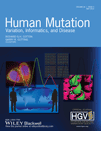Pathogenicity Prediction
Summary
Prioritizing missense variants for further experimental investigation is a key challenge in current sequencing studies for exploring complex diseases. A large number of in silico tools have been employed for this task of pathogenicity prediction, including PolyPhen-2, SIFT, FatHMM, MutationTaster-2, MutationAssessor, CADD, LRT, phyloP and GERP++. Due to the wealth of these methods, an important practical question to answer is which of these tools generalize best, that is, correctly predict the pathogenic character of new variants.
We here demonstrate in a study of 10 tools on five datasets that such a comparative evaluation of pathogenicity prediction tools is hindered by two types of circularity: they arise due to (1) the same variants or (2) different variants from the same protein occurring both in the datasets used for training and for evaluation of these tools, which may lead to overly optimistic results. We show that comparative evaluations of predictors that do not address these types of circularity may erroneously conclude that circularity-confounded tools are most accurate among all tools, and may even outperform optimized combinations of tools, such as Condel and Logit.
Data and Code
Benchmark datasets in Excel format. Contains five tabs, each tab contains the data and the predictied labels and scores from each tool: DownloadBenchmark Dataset (XLSX, 23.4 MB)vertical_align_bottom
Supporting Data S1, contains the data in CSV format and all Python scripts to reproduce the Figures, Tables and Supporting Figures from this study: DownloadSupporting Data S1 and Python Scripts (ZIP, 6.7 MB)vertical_align_bottom
Data is also available at the VariBench website: external pageVariBench Database for Variationscall_made
The code is also available in our GitHub repository external pageherecall_made.
Publication
The Evaluation of Tools Used to Predict the Impact of Missense Variants is Hindered by Two Types of Circularity
Dominik G. Grimm, Chloé-Agathe Azencott, Fabian Aicheler, Udo Gieraths, Daniel G. MacArthur, Kaitlin E. Samocha, David N. Cooper, Peter D. Stenson, Mark J. Daly, Jordan W. Smoller, Laramie E. Duncan and Karsten Borgwardt
Human Mutation 2015, 36(5): 513-523
external pageOnlinecall_made | ETH Research Collection | Project page | external pageGitHubcall_made
Contact Dominik Grimm for questions.

